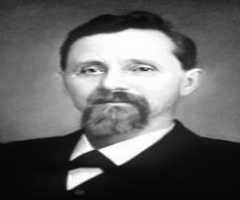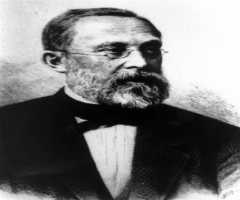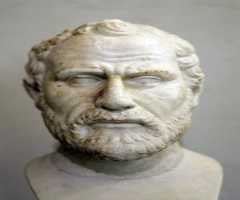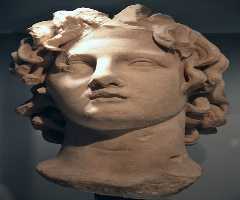Hippocrates Biography, Life, Interesting Facts
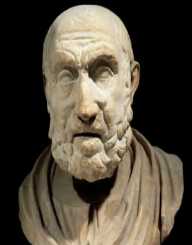
Birthday :
Died On :
370
Birth Place :
Zodiac Sign :
Do you think you have read it all? Meet the father of medicine, Hippocrates. Before breathing his last, he did noteworthy achievements concerning clinical matters. Hippocrates teachings bring us closer to medical awareness. In the same measure, he brought forth several facts, including "Hippocratic Corpus" and the oath itself.
Hippocrates believed that ample health originated from balancing four body's senses of humor. Stay put to know what they are and their equilibrium ratio. In other sources, the physician had the fact that most diseases theorized from natural causes instead of superstitions. Did you know that his medical practice sent him to prison for close to 20 years? Scroll further to find your why and how to answer.
The Perfect Doctor
Hippocrates of Kos or preferably Hippocrates II studied the human body for monitoring. It is still called The Hippocratic Oath. According to other historians, he was knowledgeable, old yes but wise and kind. His fame directed him to notable mentions from Aristotle and Plato.
Throughout his life, he is most recalled as the founding father of the Hippocratic School of medicine. The lessons he prescribed spread far beyond. It gave a significant impact on western medicine.
Since inception, if this notable calling, Hippocrates stayed dear to his facts. He made it clear throughout his teachings that doctors and magic are like water and kerosene. Further, he made it known that health practitioners should benefit more on the health of their patients.
It is still not clear whether Hippocrates wrote all of his collection. Glad his practice plays a significant role in the new era. When it came to diagnosing a symptom Hippocrates loved to observe first the patient and then followed a record. All applauded the process. Why? It made it easier for doctors to select the cure for the cause of the problem carefully. Secondly, the notes helped for further investigation plus treating a similar case with a different patient.
Background Check
Several historians and sources suggest that Hippocrates was born around 460BC in Kos, Greece. There's little to know info about his early life and not to mention the work surrounding. According to a great physician, Soranus of Ephesus, Hippocrates was born to Heraclides, and his maternal mother was Praxiteles. His father was a noble character in medicine.
Hippocrates followed his father's career, and in turn, he argued that people get sick due to scientific facts. He made daily medical notes, including excretion, fever, pulse, and pains. His motive was that people would read his directions and more so believe and follow his writing.
The works of Suda and John Theses believed that Hippocrates loved to travel in Greece and Asia. As previously mentioned, he wanted to spread his teaching to and fro. It is also publicized that he gained the recognition of medicine from his grandfather and father. Besides, Democritus and Gorgias also played a huge role in bringing up him to the career ladder.
In between Hippocrates gained significant expertise from Herodicus of Selymbria. His thoughts in medicine went as far as Thessaly and Thrace.
Imprisonment
In Ancient Greece, The clear essence was that illness came from superstitions or gods. The end remedy to this was them (patients) paying the priest for healing. Of course, the priest received a huge payment. Whether the individual got cured or not, it was up to them, the priest did his part. If symptoms persisted, he/she would find a way to get another amount. That was the only possible option left.
Good news is that Hippocrates introduced proven methods of healing through medicine. Just like that, people started to get a cure for their long-term illnesses. You would have imagined that his reward would be a Noble Prize. Just an imagination; Greek's priest's and their livelihood threatened the father of medicine. A question to them was, why did he come to compete with them? Teaming up with ranked leaders, Hippocrates spent time in jail for 20 years. He spent two decades in a confined place for caring for Greek's health.
With all that, something else was born out of this; his medicinal book called "The Complicated Body."
Hippocratic Oath
Instead of giving the diagnostic first, the physician wanted to know the course of each patient's medical condition. It merely means that he allowed the doctor to predict the outcomes according to the data collected, whether weekly or monthly.
In the process, Hippocrates came to focus more on teaching about what nature can do to an ill-being. Hippocrates gathered his idea that doctors only help the patients to have proper nutrition and ample rest plus upright diet.
In his book 'The Complicated Body' Hippocrates talked about loads of things. However, two significant points touched the souls of many. See below:
A. The Doctor-Patient Confidentiality
One of the notable contributions that Hippocrates made in his career was the birth of "The Hippocratic Oath." The said subject carries its name. It gives vital concepts that are still used to date.
In one of his collection, he argues that doctors should adhere to the patient's treatment. He stood by his word that an everyday patient must have his/her privacy. Besides, anything discussed with the medical practitioner shouldn't be spread in a gospel-like manner.
In other words, honesty, discipline, and professionalism are a necessary thing in physical health and practice of medicine. When it comes to cleanliness, Hippocrates noted down that the healthcare instrument and rooms should be neat and spotless. He went further to discuss the upkeep of fingernails and overall hygiene.
B. Forecasting Diseases
In addition to the point above, this point is also imperative. Why? It's all about prediction and foretelling. Well, Plato and Aristotle's writings clearly state that first clinicians should examine the victims face. If he/she looks okay, then that's a good sign.
Hippocrates logically followed that there are bad signs that one should look out for including, hollow eyes, sharp ears, or dry skin. Afterward, the examining process proceeds with a question if the patient has either eaten slept or had a watery stool.
Following the above strategies, Hippocrates and his team came up with several medical conditions. Major ones include lung disease, cancer, plus low oxygen levels in the heart.
Valid Treatments
Countable of Hippocrates practice of medicine methods are still used to date. Well, known treating expertise include hemorrhoids, pneumonia, and surgical treatment. Not to mention, he was the first physician to introduce chest surgery and surgical skills. It's also imperative to note that some of his teachings reached halfway.
In addition to logical treatments, the father of medicine often dictated that nature heals patients. In other words, nature time, cleanliness, rest, and nutrition does it all that the doctor subscriptions. The medic afterward must not get in the way but rather smooth the healing path.
Hippocrates narration turned positive during a ruptured leg examination. He explained that setting a brace supports patient mobility.
Legacy
Hippocrates had two biological sons called Draco and Thessalus. Presumably, the physician died in 370BC in Greece. Several sources claim that he breathed his last at 80 or 90 years of age.
His thought of medicine gave him a chance to write loads of books. Famous ones include On Injuries of head, Of the Epidemics, On Ulcers, On Fistulae, The Oath, On the Surgery and many more.



